- europages
- >
- COMPANIES - SUPPLIERS - SERVICE PROVIDERS
- >
- nickel alloy pipes & tubes
Results for
Nickel alloy pipes & tubes - Import export
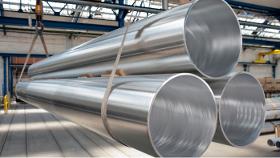
ALUMINIUMWERK UNNA AG
Germany
In the aluminium industry, the porthole extrusion process is the standard method for the production of extruded tubes and profiles. The process is limited to a number of aluminium alloys. However, most of the commercially available medium strength aluminium alloys such as EN AW-6060 or EN AW-6082 can be extruded by porthole extrusion.
Request for a quote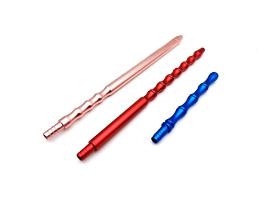
MING XIAO MANUFACTURING CO., LTD
China
Custom Quality Anodized Aluminum Tubes Ming Xiao Manufacturing Co., Ltd engaged in precision turning parts manufacuring more than 20years, we have a lot of different machines for different turned parts & machined parts. we custom quality anodized aluminum parts according to customers drawing or samples. As a professional machined parts supplier from China,we can produce aluminum machined parts from aluminum bar,aluminum extruded profiles,aluminum tubes,rough parts of die castings, All commonly used aluminum alloy can be processed, if you want the aluminum alloy Number is not routinely supplied, as long as the quantity is enough, we can provide customized services. We are specialize in custom Anodized Aluminum tube, we do further CNC turning on anodized products to make texture of decorative design,If you have any aluminum machined Parts need done anodizing,Welcome contact us to discuss about your projects.
Request for a quote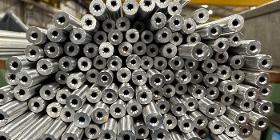
AMETEK SPECIALTY METAL PRODUCTS
United States
Alloy 825 (UNS N08825) is an austenitic nickel-iron-chromium alloy with additions of molybdenum, copper and titanium. It was developed to provide exceptional corrosion resistance in both oxidizing and reducing environments. The alloy is resistant to chloride stress-corrosion cracking and pitting. The addition of titanium stabilizes Alloy 825 against sensitization in the as-welded condition making the alloy resistant to intergranular attack after exposure to temperatures in a range that would sensitize unstabilized stainless steels. The fabrication of Alloy 825 is typical of nickel-base alloys, with material being readily formable and weldable by a variety of techniques Please note that we have a minimum order value of £10,000.
Request for a quote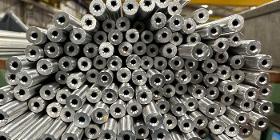
AMETEK SPECIALTY METAL PRODUCTS
United States
Alloy 800, 800H, and 800HT are nickel-iron-chromium alloys with good strength and excellent resistance to oxidation and carburization in high-temperature exposure. These nickel steel alloys are identical except for the higher level of carbon in alloy 800H/HT and the addition of up to 1.20 percent aluminium and titanium in alloy 800HT. Alloy 800 was the first of these alloys and it was slightly modified into Alloy 800H. This modification was to control carbon (.05-.10%) and grain size to optimize stress rupture properties. In heat treatment applications Alloy 800HT has further modifications to the combined titanium and aluminium levels (.85-1.20%) to ensure optimum high temperature properties. Alloy 800H/HT was intended for high temperature structural applications. The nickel content makes the alloys highly resistant to both carborisation and to embrittlement from precipitation of sigma phase. Please note that we have a minimum order value of £10,000.
Request for a quote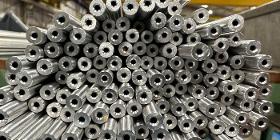
AMETEK SPECIALTY METAL PRODUCTS
United States
Alloy 718 was initially developed for the aerospace industry but its excellent strength and corrosion resistance were recognised by the oil industry and it is now widely used in this field also. Alloy 718 is a nickel-chromium alloy with additions of niobium & molybdenum which can be heat-treated to give high strength, good corrosion resistance, ease of formability and which can be welded with good resistance to strain age cracking. The alloy can be used at temperatures up to 700ºC. Alloy 718 for the oil industry is heat treated such that the hardness does not exceed 40HRC which is the maximum allowed by NACE MR-01-75/ ISO 15156: 3 to prevent stress corrosion cracking. Alloy 718 for aerospace and power generation is heat treated to give maximum strength and high creep resistance with typical hardness values exceeding 42HRC. The major applications are components for gas turbines, aircraft engines Please note that we have a minimum order value of £10,000.
Request for a quote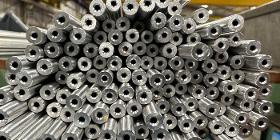
AMETEK SPECIALTY METAL PRODUCTS
United States
Alloy 690 is a high-chromium nickel alloy having excellent resistance to many corrosive aqueous media and hightemperature atmospheres. The alloy’s high chromium content gives it excellent resistance to caturisation, metal dusting, oxidation and sulfidation at high temperature. In addition to its corrosion resistance, alloy 690 has high strength, good metallurgical stability, and favorable fabrication characteristics. Please note that we have a minimum order value of £10,000.
Request for a quote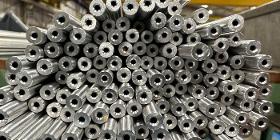
AMETEK SPECIALTY METAL PRODUCTS
United States
Alloy 600 is a nickel-chromium alloy designed for use from cryogenic to elevated temperatures in the range of 2000°F (1093°C). The high nickel content of the alloy enables it to retain considerable resistance under reducing conditions and makes it resistant to corrosion by a number of organic and inorganic compounds. The nickel content gives it excellent resistance to chloride-ion stress-corrosion cracking and also provides excellent resistance to alkaline solutions. Its chromium content gives the alloy resistance to sulphur compounds and various oxidizing environments. In strong oxidizing solutions like hot, concentrated nitric acid Alloy 600 has poor resistance. Alloy 600 is relatively un-attacked by the majority of neutral and alkaline salt solutions and is used in some caustic environments. The alloy resists steam and mixtures of steam, air and carbon dioxide. Please note that we have a minimum order value of £10,000.
Request for a quote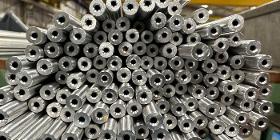
AMETEK SPECIALTY METAL PRODUCTS
United States
MP35N* is an age hardenable nickel-cobalt base alloy that has a unique combination of properties - ultra high strength, toughness, ductility and outstanding corrosion resistance. MP35N resists corrosion in hydrogen sulphide, salt water and other chloride solutions. It also has excellent resistance to crevice and stress corrosion cracking in sea water and other hostile environments. Suitable where a high combination of strength, high modulus values and good corrosion resistance are required. Applications for this alloy also include medical devices and dental products. Please note that we have a minimum order value of £10,000.
Request for a quote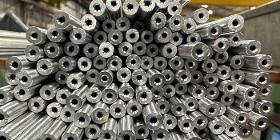
AMETEK SPECIALTY METAL PRODUCTS
United States
Alloy 276 is a nickel-molybdenum-chromium superalloy with an addition of tungsten designed to have excellent corrosion resistance in a wide range of severe environments. The high chromium, molybdenum and tungsten contents make the alloy especially resistant to pitting and crevice corrosion in reducing environments while chromium conveys resistance to oxidizing media. The low carbon content minimizes carbide precipitation during welding to maintain corrosion resistance in as-welded structures. This nickel alloy is resistant to the formation of grain boundary precipitates in the weld heat-affected zone, thus making it suitable for most chemical process application in an as welded condition. Alloy 276 is widely used in the most severe environments such as mixed acid chemical processing, pollution control, pulp and paper production, industrial and municipal waste treatment, and recovery of sour oil and gas. Please note that we have a minimum order value of £10,000.
Request for a quote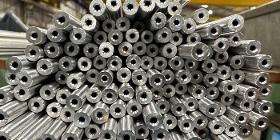
AMETEK SPECIALTY METAL PRODUCTS
United States
Alloy 22, is a versatile austenitic nickel-chromium-molybdenum-tungsten alloy with enhanced resistance to pitting, crevice corrosion and stress corrosion cracking. The high chromium content provides good resistance to oxidizing media while the molybdenum and tungsten content give good resistance to reducing media. This nickel alloy also has excellent resistance to oxidizing aqueous media including wet chlorine and mixtures containing nitric acid or oxidizing acids with chlorine ions. Alloy 22 has resistance to oxidizing acid chlorides, wet chlorine, formic and acetic acids, ferric and cupric chlorides, sea water, brine and many mixed or contaminated chemical solutions, both organic and inorganic. This nickel alloy also offers optimum resistance to environments where reducing and oxidizing conditions are encountered in process streams. This is beneficial in multi-purpose plants where such “upset” conditions occur frequently. Please note that we have a minimum order value of £10,000.
Request for a quote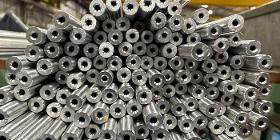
AMETEK SPECIALTY METAL PRODUCTS
United States
Nickel based alloys are very useful materials for the manufacture of high quality tubing products. One of the key reasons is that they offer excellent corrosion resistance in both aqueous and high temperature applications. Nickel alloy tubes offer excellent corrosion resistance, high melting points and resistance to oxidationIn addition to their high melting points and resistance to oxidation and corrosion, nickel alloys are very ductile. Nickel based alloys have a higher ability to accept alloying elements in solid solution than other stainless steel or iron-based alloys. They cantherefore maintain higher metallurgical stability. The combination of high alloying with multiple elements can provide very good corrosion resistance in a wide range of environments while still maintaining good welding and forming characteristics. Please note that we have a minimum order value of £10,000.
Request for a quote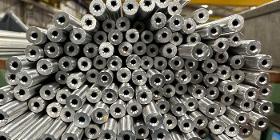
AMETEK SPECIALTY METAL PRODUCTS
United States
Alloy 625 is a nickel-chromium-molybdenum alloy used for its high strength, excellent fabricability and outstanding corrosion resistance. Service temperatures can range from cryogenic to 980°C (1800°F). Alloy 625 strength is derived from the solid solution strengthening effect of molybdenum and niobium on its nickel-chromium matrix. Thus precipitation-hardening treatments are not required. This combination of elements also is responsible for superior resistance to a wide range of corrosive environments of unusual severity as well as to high-temperature effects such as oxidation and carburization. Please note that we have a minimum order value of £10,000.
Request for a quote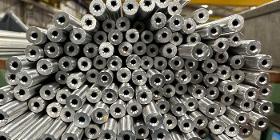
AMETEK SPECIALTY METAL PRODUCTS
United States
The chemically stable and high-temperature resistant nickel-chromium-molybdenum alloy 2.4605 (alloy 59) is mainly used in the chemical industry, flue gas desulphurisation plants, paper industry. Alloy 59 is a nickel-chromium-molybdenum alloy with excellent corrosion resistance and high mechanical strength. The alloy has excellent resistance to both oxidizing and reducing media, and possesses superior resistance to chloride pitting and stress corrosion cracking. The alloy is widely used in the most severe environments. Some applications include: flue gas scrubber components, bleach plant and digester components for the pulp and paper industry, sour gas handling equipment, sulfuric acid coolers, waste incinerators and seawater equipment. Please note that we have a minimum order value of £10,000.
Request for a quote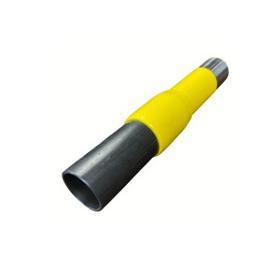
INVENTIVE PRODUCTION CENTER (IPC), LLC
Russia
Without bolts and fully assembled at the factory monolithic carbon-stainless steel adapters installed during the ground-to-air transition and connects pipelines of various steel grades
Request for a quote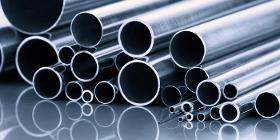
AMETEK SPECIALTY METAL PRODUCTS
United States
6 Mo (UNS S31254) is a super austenitic stainless steel with a high level of molybdenum and nitrogen, providing high resistance to pitting and crevice corrosion as well as high strength compared with conventional austenitic stainless steels such as 316L. The alloy can provide excellent resistance to stress corrosion cracking allowing tube cold formingand may be used without the necessity to re-anneal at testing up to 120°C. Please note that we have a minimum order value of £10,000.
Request for a quote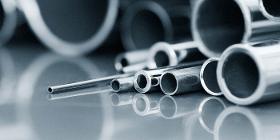
AMETEK SPECIALTY METAL PRODUCTS
United States
316Ti (UNS S31635) is a titanium stabilised version of 316 molybdenum-bearing austenitic stainless steel. The 316 alloys are more resistant to general corrosion and pitting/crevice corrosion than the conventional chromium-nickel austenitic stainless steels such as 304. They also offer higher creep, stress-rupture and tensile strength at elevated temperature. High carbon Alloy 316 stainless steel can be susceptible to sensitisation, the formation of grain boundary chromium carbides at temperatures between approximately 900 and 1500°F (425 to 815°C) which can result in intergranular corrosion. Resistance to sensitisation is achieved in Alloy 316Ti with titanium additions to stabilise the structure against chromium carbide precipitation, which is the source of sensitisation. This stabilisation is achieved by an intermediate temperature heat treatment, during which the titanium reacts with carbon to form titanium carbides. Please note that we have a minimum order value of £10,000.
Request for a quote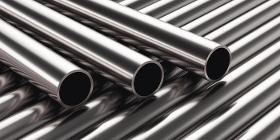
AMETEK SPECIALTY METAL PRODUCTS
United States
Ti 6Al/4V (Titanium Grade 5) is the most widely used of all the alpha-beta titanium alloys accounting for more than 50% of total titanium usuage. It is typically used in the annealed condition, at service temperatures through 400°C (750°F). Ti 6Al/4V is welded with matching or with ELI filler wire. Ti 6Al/4V is significantly stronger than commercially pure titanium while having the same stiffness and thermal properties excluding thermal conductivity, which is about 60% lower in Grade 5 Ti than in CP Ti. Amongst its many advantages, it is heat treatable. This grade is an excellent combination of strength, corrosion resistance, weld and fabricability. In consequence, its uses are numerous such as for military aircraft or turbines. It is also used in surgical implants. Generally, it is used in applications up to 400°C to improve ductility and toughness in cold-worked condition. Please note that we have a minimum order value of £10,000.
Request for a quoteDo you sell or make similar products?
Sign up to europages and have your products listed
Results for
Nickel alloy pipes & tubes - Import exportNumber of results
18 ProductsCountries
Company type